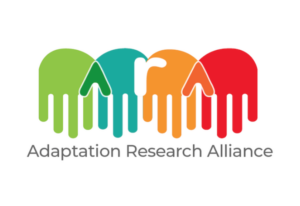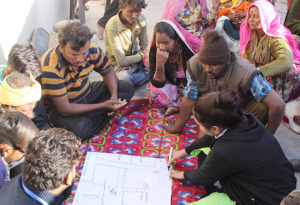Adaptation Research Alliance Launched – Addressing an Urgent Need for Better and Actionable Evidence
 PlanAdapt is proud to be among the initial members of the Adaptation Research Alliance (ARA) – a bold new global partnership to catalyse and scale investment in action-oriented research for climate adaptation and resilience that is the product a well-managed co-development process. The ARA initiative has been launched during the Gobeshona Conference and at the Global Adaptation Summit in January 2021. It aims to generate research efforts that are trans-disciplinary and action-orientated and that work hand-in-glove with practitioners on the frontlines and grapples with the prevailing socio-political and environmental contexts; without the major risks that arise from climate change will not be addressed with the necessary solutions.
PlanAdapt is proud to be among the initial members of the Adaptation Research Alliance (ARA) – a bold new global partnership to catalyse and scale investment in action-oriented research for climate adaptation and resilience that is the product a well-managed co-development process. The ARA initiative has been launched during the Gobeshona Conference and at the Global Adaptation Summit in January 2021. It aims to generate research efforts that are trans-disciplinary and action-orientated and that work hand-in-glove with practitioners on the frontlines and grapples with the prevailing socio-political and environmental contexts; without the major risks that arise from climate change will not be addressed with the necessary solutions.
At a time when the need for evidence-based adaptation solutions is growing rapidly, the global research community is not yet sufficiently mobilised and connected to the actors on the front lines—governments, communities and marginalised people. As a result, research efforts are not adequately meeting worldwide demand for coordinated and actionable evidence to guide effective adaptation and resilience strategies that will reduce the impacts of climate change on the most vulnerable. Without a significantly increased and targeted effort to mobilise research in a trans-disciplinary, action-orientated manner that works hand-in-glove with practitioners on the frontlines and grapples with the prevailing socio-political and environmental contexts, the major risks that arise from climate change will not be addressed with the necessary solutions.
The design of ARA is based on the following shortcomings:
- Under-investment in action-orientated research;
- Disconnect between research and the needs of the most vulnerable;
- Misaligned incentives and institutional barriers;
- Low coherence and coordination in adaptation;
- Limited capacity in communities and developing countries;
- Limited learning from implementation (lack of metrics).
 The research community is a highly valued partner to policymakers, practitioners and the most vulnerable communities, and engages effectively to support the delivery of innovative, user-driven solutions for adaptation and resilience from the global to local levels. In endorsing this vision, the ARA partners commit ourselves to meaningful action and mutual accountability for realising the systemic and structural changes needed in adaptation and resilience research. The members of ARA will work together in the run-up to the 26th session of the Conference of Parties to the UNFCCC to ensure that it sets targets for ambitious and realistic outcomes that enable adaptation and resilience research that is led by needs of the most vulnerable and develops solutions commensurate with the scale of the climate emergency.
The research community is a highly valued partner to policymakers, practitioners and the most vulnerable communities, and engages effectively to support the delivery of innovative, user-driven solutions for adaptation and resilience from the global to local levels. In endorsing this vision, the ARA partners commit ourselves to meaningful action and mutual accountability for realising the systemic and structural changes needed in adaptation and resilience research. The members of ARA will work together in the run-up to the 26th session of the Conference of Parties to the UNFCCC to ensure that it sets targets for ambitious and realistic outcomes that enable adaptation and resilience research that is led by needs of the most vulnerable and develops solutions commensurate with the scale of the climate emergency.
Research-for-Impact approaches are at the heart of PlanAdapt’s mission. We promote learning in this area by supporting and providing learning formats that help to make your research more impactful, such as Massive Open Online Course ‘Research For Impact’. PlanAdapt’s Jesse DeMaria Kinney is one of the course instructors. Traditionally, the goals and outcomes of research projects were to contribute knowledge and communicate this knowledge through academic publications and journal articles. But If we truly want our research to have an impact, we need to do research differently. Research that influences change in policy, practice, behaviour and attitudes.
